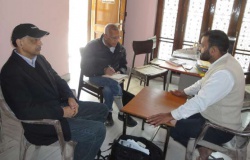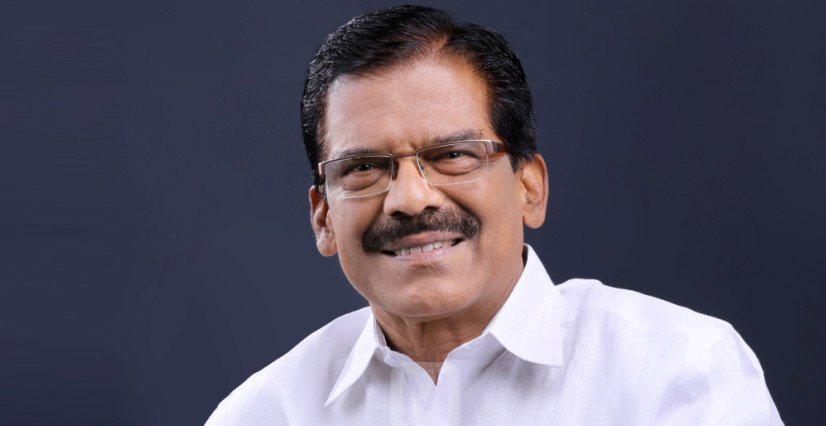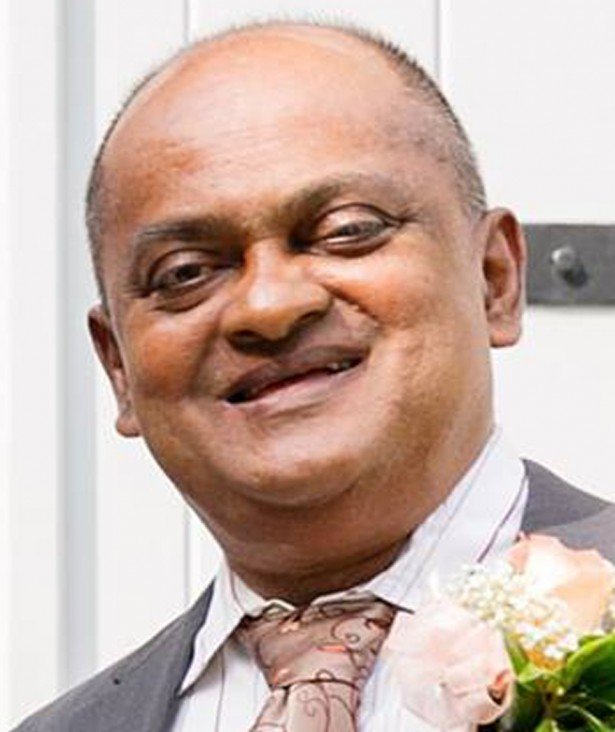A team consisted of George Abraham, Chairman and Harbachan Singh, General Secretary of the INOC (Indian National Overseas Congress (I), USA) along with Mohammed Imran, Joint Coordinator of the NRI-SAHI (Non-resident Indians for a Secular and Harmonious India) visited the Malakpura refugee camp for the Muzaffarnagar riot victims and learned of first hand the deplorable conditions under which those victims are forced to live. ‘It is a shame on our great democracy when we let these riots happen and then disregard the plight of the innocent victims to live in such a wretched condition without basic necessities and growing threat of diseases’ said George Abraham, who headed the team to visit Muzaffarnagar in U.P. ‘This is the height of incivility and indecency and a responsible system of governance has to be held accountable’ he added. ‘It is shocking to see the inaction by a Government that is supposed to protect the lives and properties of its citizens’ said Mohammad Imran who also vowed to do his very best in getting the information across to the authorities and the media.
The team first visited Muzaffarnagar where a legal team is doing their best to assist the victims. The team met with Rahimuddin, Sajjad Hussain and Saifan who briefed us on the events leading to the riots and the political motives and the players behind the scenes. These volunteers are working with an NGO called ‘Popular Front of India Civil Rights Movement’ to get justice for the victims including compensation for resettlement. In our discussions, we were told that FIRs were filed against 19 politicians for inciting riots and three of them have been arrested for a short time and then released. The team repeatedly heard of the criticism of the appointment of Amit Shah, the former home minister of Gujarat who was arrested on charges of encounter killings in Gujarat as the Modi Campaign Coordinator for the Western U.P. before the riots.
The Muzaffarnagar riots took place in September 2013 that killed about 67 people, injured 150 and displaced about 45000 people to the refugee camps. In addition, several women were raped and scores of houses were looted and torched including places of worship and items. Although 566 FIRs were filed, very few cases are currently being heard in the courts. It is alleged that the State Government headed by the Samajawadi party is more interested in pushing people out of camps for a Public Relations exercise than hearing their complaints of settling the claims.‘The Jats and the Muslims are the same people culturally who have lived in peace over the years’ said one of the volunteers who is involved with relief efforts. ‘When an Imam issued a fatwa over the use of cell phone by Muslim women, the whole community, including the Jats and Muslims went to the Police Station and filed an FIR against such an illegal action. Breaking up of that unity was politically motivated’
The team traveled another 52 Km to the village of Malakpura to visit the largest camp where about 5000 victims are housed. It took almost 3.5 hours to cover that distance where the roads are of such bad conditions that one couldn’t help but to think that these camps were deliberately put in remote places where people would not dare to travel thereby leaving the victims without proper support from NGOs or Civil Society groups.
The mere sight of the camp looked dusty and dirty with numerous tents covered with sheets of tarpaulin providing protection from scorching sun and severe cold temperature at night. The Children were running around barefoot while others were huddled indoors hoping to stay warm. Tents were torn and some looked collapsed barely surviving the winter months. The family belongings are scattered across and few bricks put together made up of a cooking facility outside the tent. Except for some hand pumps providing water, there was no steady supply of milk for the infants or fuel for cooking other than cut leaves from nearby sugar canes, They have lived through one of the harshest winters in history and often at nights, we were told, freezing water would be seeping down through the tarp and causing many children to fall ill and succumb to deaths right at the camp. We met a woman who is grieving for two of her children who recently died at the camp. We were also shown the freshly dug grave sites where many of these bodies of the children were recently buried.
The men we met at the camp were eager to get back to work however; there was very little opportunity to find jobs around the camp. The children are deprived of their education as there are no logistics to send them to nearby schools.
The refugees are afraid to go back to their own villages as they fear for their lives and the authorities are doing very little either to assure their safety or resettle them in other parts of the State where they could possibly resume normal lives. It is a great tragedy that is heart breaking and yet still unfolding.
A detailed report of the Muzaffarnagar visit by the team will be published soon and will be sent to local and central authorities in India with an NRI perspective.
















Comments